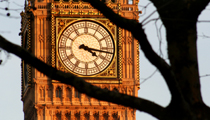This website uses cookies so that we can provide you with the best user experience possible. Cookie information is stored in your browser and performs functions such as recognising you when you return to our website and helping our team to understand which sections of the website you find most interesting and useful.
Business News Legal Live Business Top Stories
Lords pass proposed secondary ticketing regulations
By Chris Cooke | Published on Friday 21 November 2014
The House Of Lords yesterday voted – just – to include a new clause in the Consumer Rights Bill that would force people touting tickets online to provide buyers with a bunch of extra information, a move designed to make it clearer who exactly it is reselling tickets, how big a mark-up is being added, and what the risks are to the consumer by buying tickets on the secondary market.
The amendment stems from a report published by the All-Party Parliamentary Group On Ticket Abuse back in April, which hoped to speed up the prospect of some ticketing touting regulation by amending the in-development Consumer Rights Bill, rather than having to promote bespoke ticket touting legislation to government or via a private members bill.
The amendment approved by 183 votes to 171 by the Lords yesterday would oblige a ticket seller using a resale site like Viagogo, Seatwave or StubHub to reveal their identity, declare the face value of tickets they are selling, provide seat numbers and booking refs associated with the ticket, and state whether the terms and conditions of the ticket being sold give the promoter the right to block entry to the event if they discover the ticket was resold. The secondary sites would also be obliged to ensure this information is given.
There are various motives behind the proposed regulations including: exposing the commercial touts who prolifically buy up tickets; making sure consumers realise that they are buying a touted ticket, the premium they are paying and the possible risk of being refused entry; and trying to stop touts from selling tickets they are yet to actually secure from the primary seller (sometimes before tickets are even on sale via the official route).
There is opposition to the proposals, which aren’t endorsed by the government. Although a number of key sporting bodies have been pushing for more regulation of the secondary ticketing market, the live music industry is of two minds, not least because some live music players are now in the resale game themselves.
Meanwhile, Live Nation’s Ticketmaster, which is in both the primary and secondary ticketing business, argues that over regulating the latter will force the touts onto online platforms outside the direct jurisdiction of the UK, where consumers are more likely to be the victims of ticket fraud. Ticketmaster reckons that any regulation should focus on those using clever software that enables them to buy up significant portions of primary tickets to in-demand events.
And while the APPG’s proposals have some key supporters in parliament, who secured the vote in the Lords this week, there are plenty in the political community who share Ticketmaster’s view. It will be interesting to see what the House Of Commons makes of the Lords-approved amend.
But welcoming yesterday’s vote, Lib Dem Lord Tim Clement-Jones, who was behind the Live Music Act in 2012, told reporters: “This is a victory both for the ticket-buying public and for the hugely important live event industry. The police and the entertainment industry have been clear that action needs to be taken on ticket touts to ensure that genuine fans can get access to gigs, shows and games without having to pay extortionate prices, and these new measures would do exactly that”.
Meanwhile the APPG’s chairs – Labour’s Sharon Hodgson and the Conservative’s Mike Weatherley – also welcomed the Lords vote.
Hodgson: “Ticket touts have operated with impunity for far too long. In no other market would we put up with not knowing who we were buying from or whether they even had permission to sell us a product. This amendment is a significant step towards tackling the scourge of touts and putting fans first, and I hope that the government now listens to the will of parliament.”
Weatherley: “It’s been clear for a long time that this market is not working in the interest of genuine fans or the people who put in all the hard work and investment to put on live events. Anyone operating honestly has nothing to fear from these changes, but they will make a big difference for ordinary fans. It’s imperative that the government doesn’t try to reverse this amendment when the bill comes back to the Commons”.






